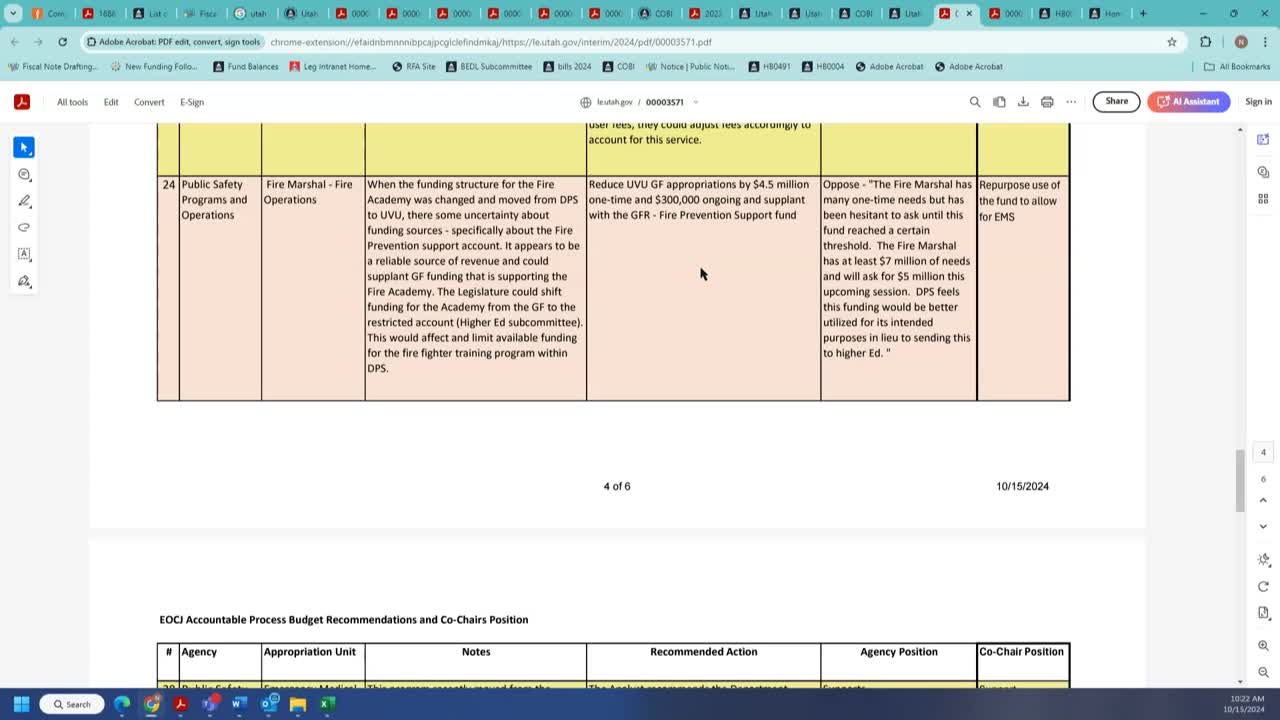Youth Rehabilitation Programs Struggle Amid Staffing Crisis
October 15, 2024 | Utah Interim, Utah Legislative Branch, Utah
This article was created by AI summarizing key points discussed. AI makes mistakes, so for full details and context, please refer to the video of the full meeting. Please report any errors so we can fix them. Report an error »

In a recent government meeting, officials discussed the critical state of treatment programs for incarcerated youth in Utah, highlighting both successes and significant challenges. The meeting featured a presentation from a representative of the juvenile justice system, who emphasized the importance of rehabilitation over punishment, as mandated by both the Supreme Court and state legislature.
The speaker noted that Utah's juvenile justice programs have garnered national attention, with numerous jurisdictions visiting to observe their practices. The core of their treatment model is based on Dialectical Behavioral Therapy (DBT), which aims to teach young people about the consequences of their actions while recognizing their potential for change.
However, the presentation also revealed troubling trends regarding staffing shortages that are impacting program efficacy. The representative reported a 39% turnover rate among staff, which has led to difficulties in maintaining consistent programming and adequate supervision for the youth. This staffing crisis has forced facilities to rely heavily on community staff, complicating the delivery of educational and vocational programs.
The challenges were underscored by a recent assessment using the Correctional Program Checklist (CPC), which indicated a decline in program effectiveness over the past two years. The representative expressed concern that these staffing issues are hindering the ability to provide the evidence-based programming that is essential for the rehabilitation of young offenders.
The meeting concluded with a call for legislative support to address these staffing challenges, ensuring that the state can continue to provide effective rehabilitation services for its youth. The officials acknowledged the importance of maintaining focus on these issues to foster positive outcomes for young people in the justice system.
The speaker noted that Utah's juvenile justice programs have garnered national attention, with numerous jurisdictions visiting to observe their practices. The core of their treatment model is based on Dialectical Behavioral Therapy (DBT), which aims to teach young people about the consequences of their actions while recognizing their potential for change.
However, the presentation also revealed troubling trends regarding staffing shortages that are impacting program efficacy. The representative reported a 39% turnover rate among staff, which has led to difficulties in maintaining consistent programming and adequate supervision for the youth. This staffing crisis has forced facilities to rely heavily on community staff, complicating the delivery of educational and vocational programs.
The challenges were underscored by a recent assessment using the Correctional Program Checklist (CPC), which indicated a decline in program effectiveness over the past two years. The representative expressed concern that these staffing issues are hindering the ability to provide the evidence-based programming that is essential for the rehabilitation of young offenders.
The meeting concluded with a call for legislative support to address these staffing challenges, ensuring that the state can continue to provide effective rehabilitation services for its youth. The officials acknowledged the importance of maintaining focus on these issues to foster positive outcomes for young people in the justice system.
View full meeting
This article is based on a recent meeting—watch the full video and explore the complete transcript for deeper insights into the discussion.
View full meeting

